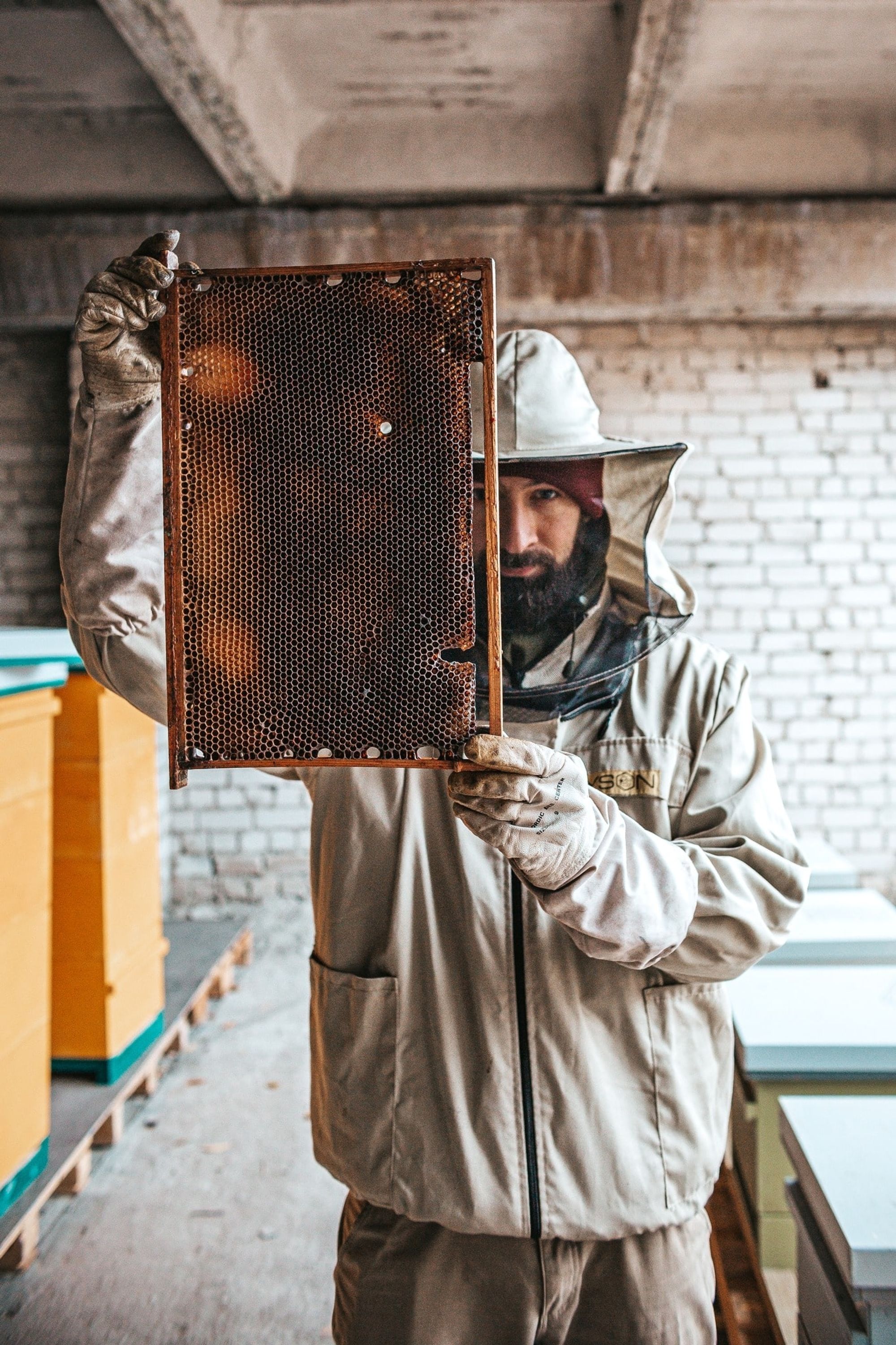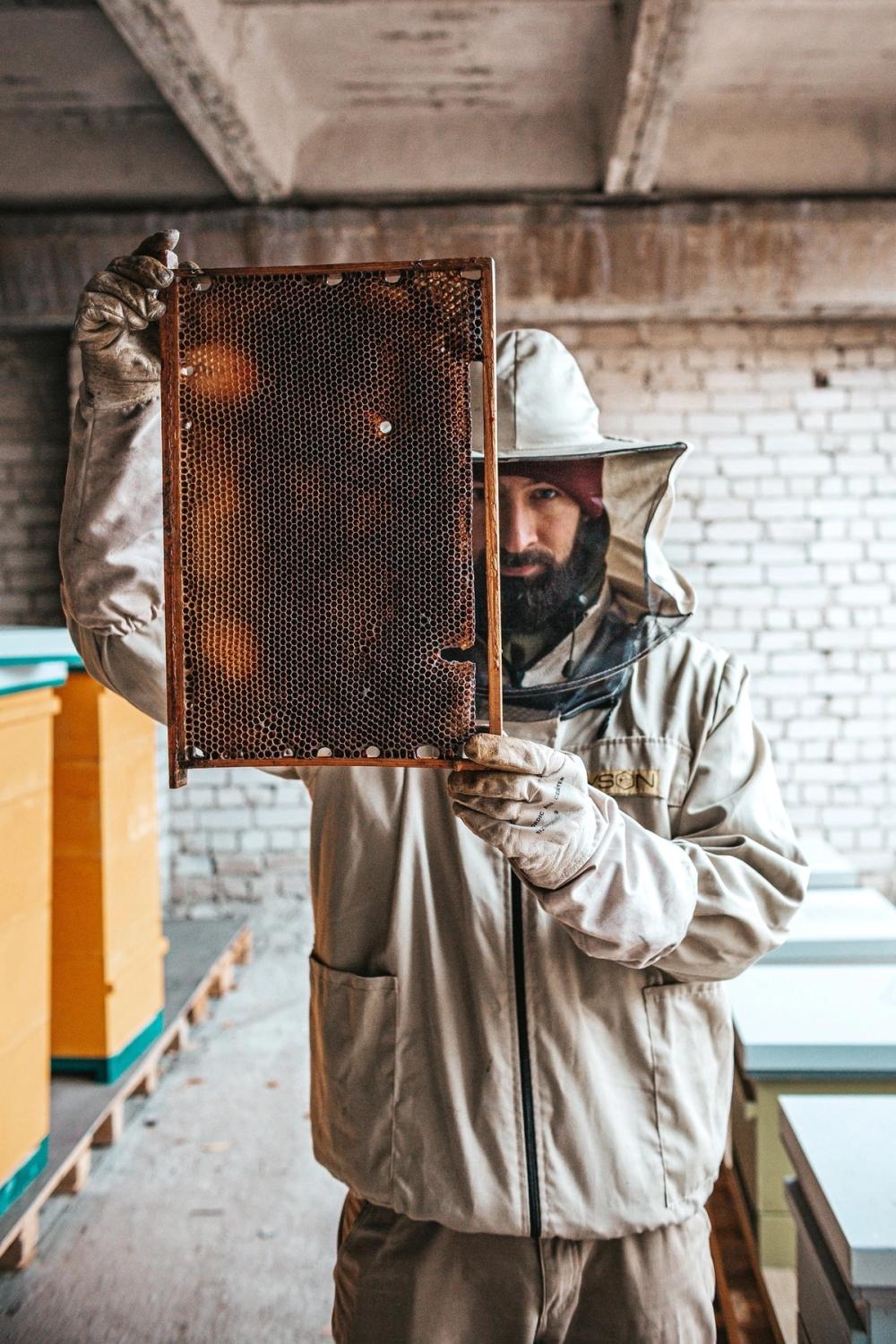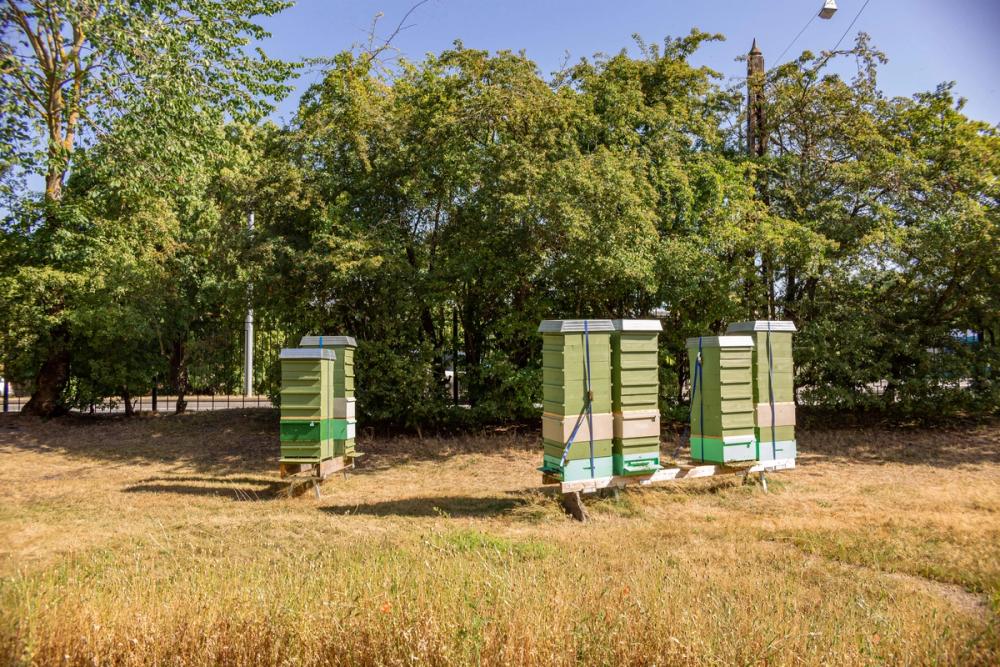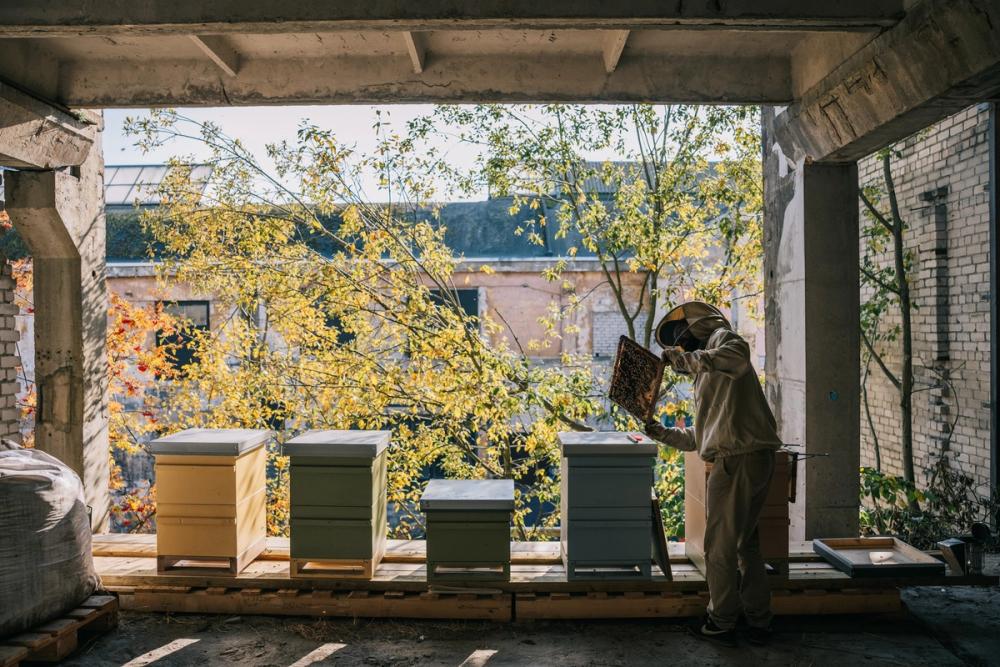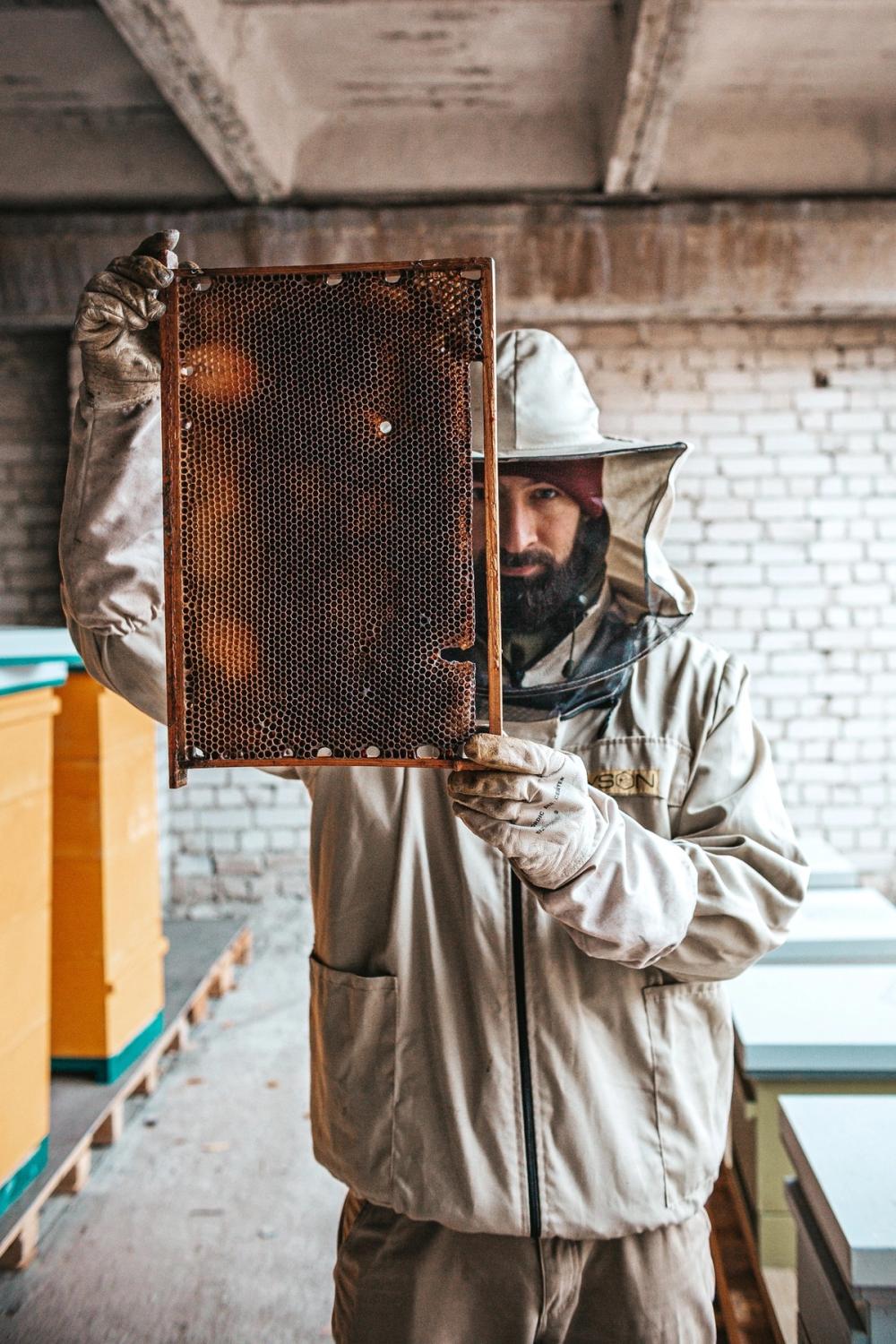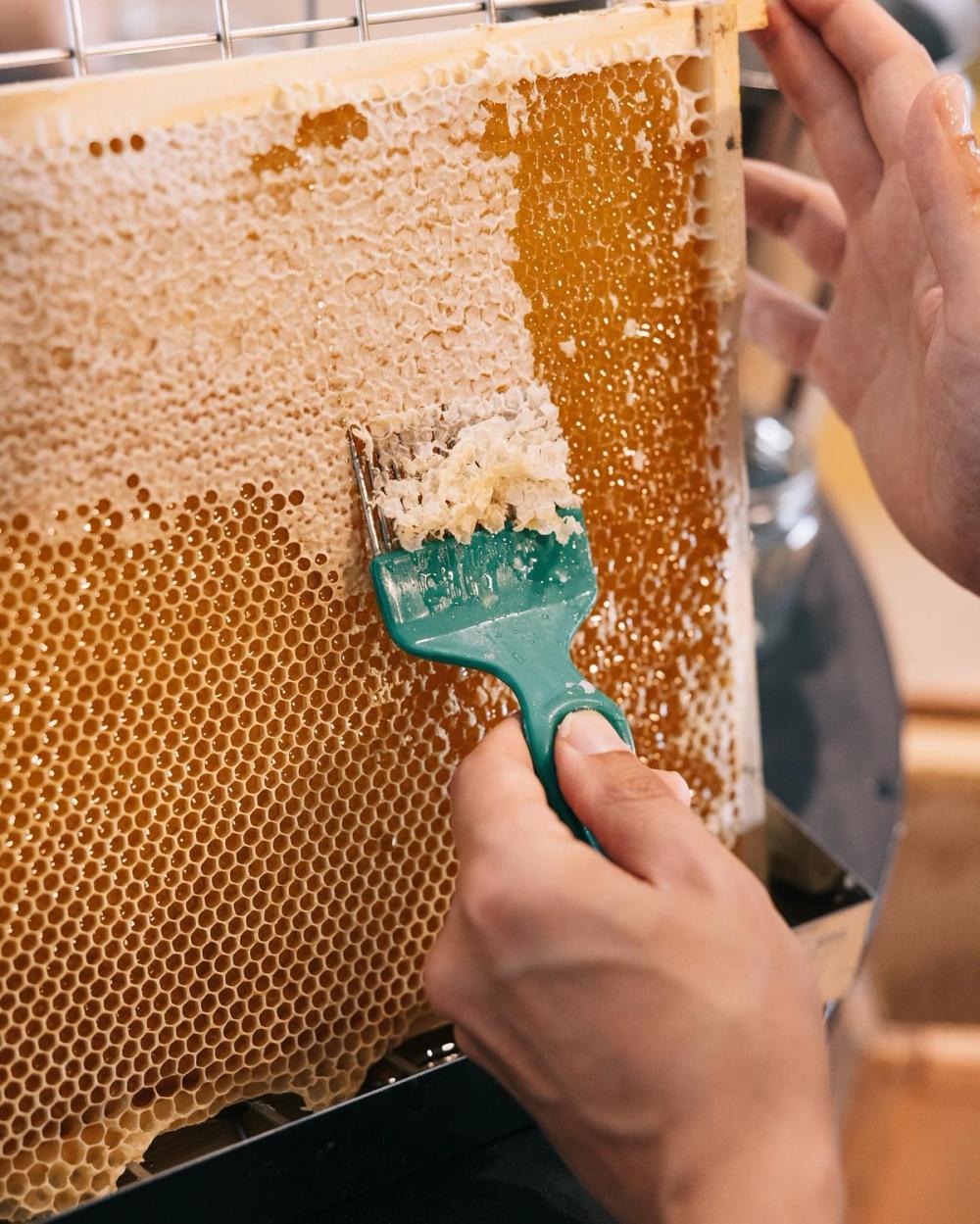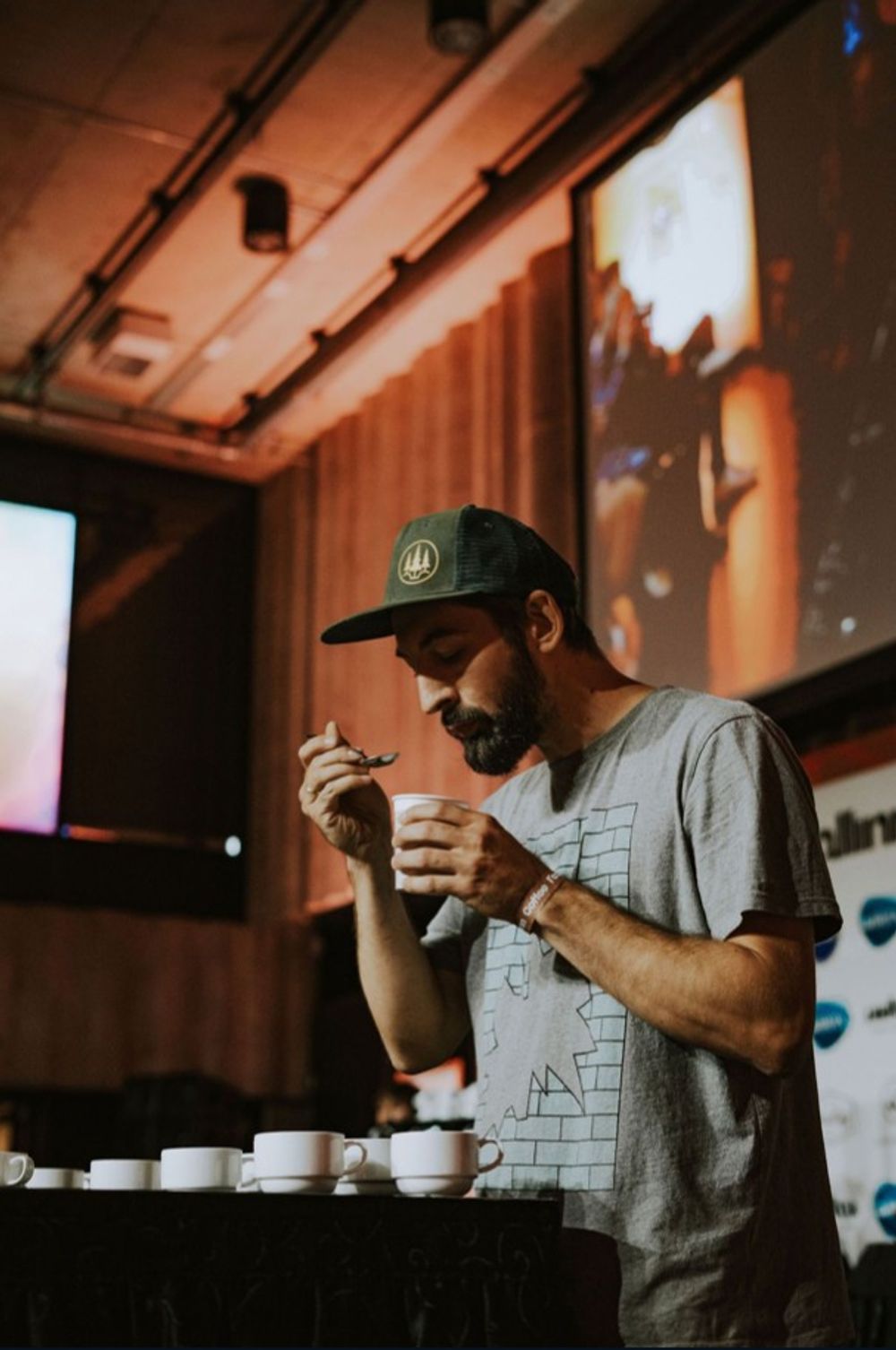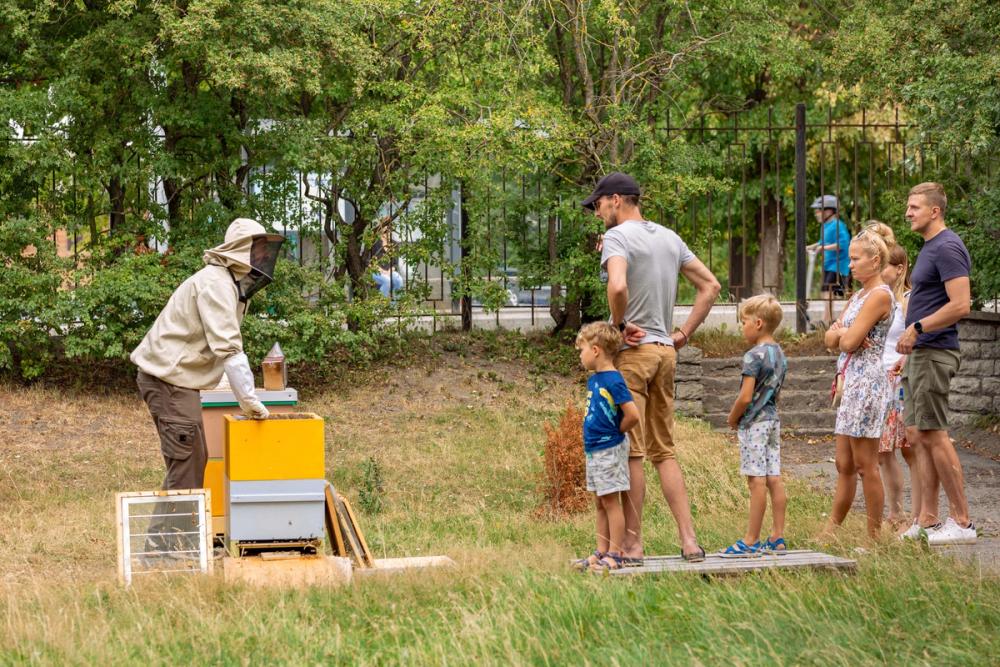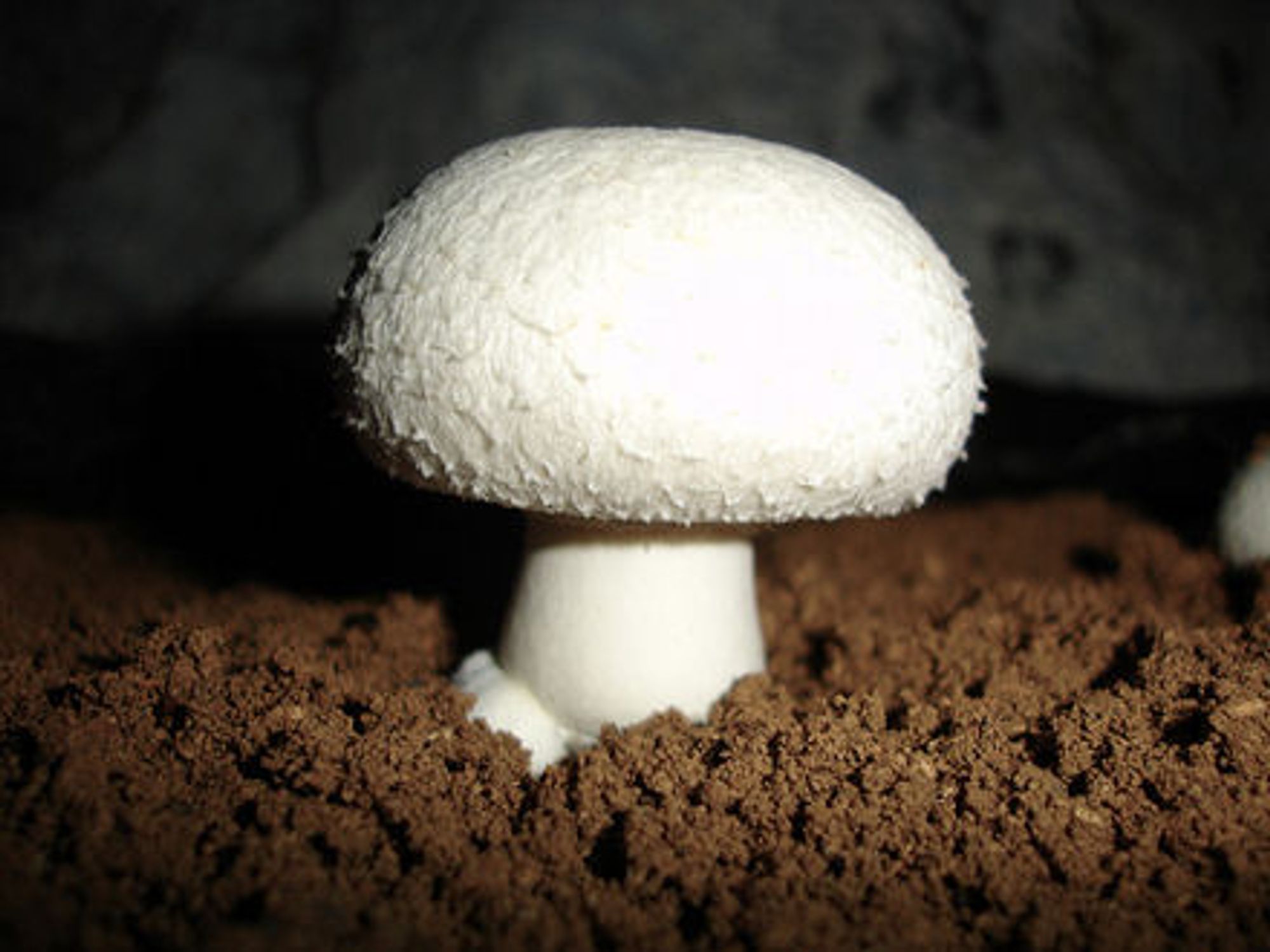Roland is an urban beekeeper and coffee guru based in Tallinn, Estonia. He owns a local coffee shop and is our community’s beekeeper. He told us his story on how bees and coffee got interlinked in his life in Kopli peninsula:
Beans and berries
After wandering around and returning back to Estonia in 2009 I joined a team of coffee enthusiasts who were the specialty coffee pioneers in Estonia. Rediscovering coffee, I had been working as a barista back in the school days, and learning more, I met my future wife and love of my life, Mari. Mari means berry in Estonian, so beans and berries started a new journey together for a better future. We established KOKOMO Coffee Roasters in 2015 and our first child Lumi Mari (snowberry in Estonian) was born the very same year and Tali (winter in Estonian) joined the team in 2018.
Living in a hidden gem
The last three years we have been living, growing and working in the northern part of Tallinn in Kopli peninsula. This, so far hidden gem where our home is, is called Professors’ Village where beautiful wooden houses have been preserved. There is still a bit of wilderness here and more nature even though the ship industry and cargo port are quite close.
The former rubber factory in peninsula is now a home and center for culture and the new future of Kopli. Põhjala Factory is where our coffee roastery lies too. It’s a few minutes bike ride from home.
Countryside grandfather
When my grandfather turned 93 years old in 2019, I understood that someone had to take over his apiary he was keeping in our country house in Central Estonia, surrounded with forest, bogs and swamps. We've always had honey on our table. I understood I would be the only one to take this responsibility. I took all his books and started to read and recall everything grandpa had taught me when I was spending the time in the countryside.
Open for bears
When the pandemic hit the world, I saw the chance since there was little less work at the cafe and we preferred to spend more time in the countryside. I managed to save some of grandpa’s hives from collapse and rebuilt our apiary with fresh queens and inventory. Then a bear came to visit in 2021. First time in 40 years! It took another year to relearn and built the new apiary. Since the bear still probably hangs around I decided to move our apiary closer to home, to Kopli and start learning urban beekeeping.
With Tallinn Beekeepers Society and Kopli 93 community house we are collaborating to teach the new generation of Kopli people how to preserve and keep our connection with nature and build a better future.


